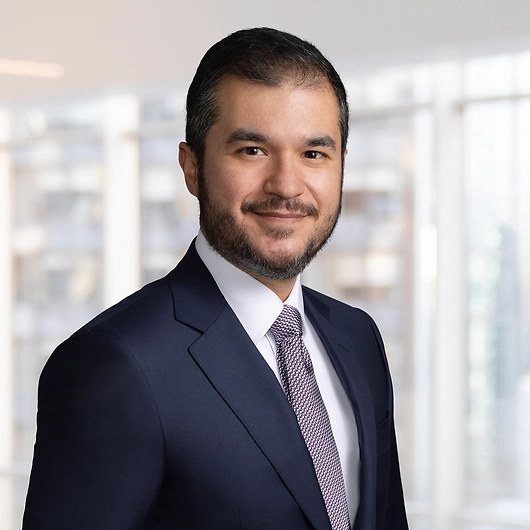On October 11, California Governor Gavin Newsom signed AB 1415, which regulates private equity and hedge fund activity by expanding the Office of Health Care Affordability’s (OHCA) jurisdiction and notice requirements.
Though the law is a compromise from last session’s AB 3129—which the Governor vetoed on September 28, 2024—it nevertheless represents a significant change for private equity groups, hedge funds, and management services organizations (MSOs) in the state.
While health care entities are already required to provide OHCA with written notice of agreements or transactions, including the sale or transfer of a material amount of their assets, the new law would require a “noticing entity” to provide written notice of agreements or transactions between it and a health care entity or MSO or an entity that owns or controls the health care entity and MSO.
AB 1415, which takes effect on January 1, 2026, would also require an MSO to provide OHCA with written notice of any agreement or transaction between the MSO and any other entity. We examine the new law in detail below.
Background
In 2022, California established OHCA within the state’s Department of Health Care Access and Information. OHCA had a broad mandate, including monitoring cost trends and other research on the health care market—which includes the impact of consolidation, market power, and venture capital activity on competition, prices, access, quality, and equity (see EBG articles here and here).
As EBG wrote last year, AB 3129 would have obligated private equity groups and hedge funds to file notice with, and obtain the written consent of, the California Attorney General before transactions with certain health care entities, including facilities and providers. The newly enacted AB 1415, by contrast, works within the existing OHCA framework and expands OHCA’s jurisdiction. In this form, stakeholders are not subject to review by the Attorney General and do not face the veto power and the ability to block transactions found in last year’s AB 3129.
AB 1415 Definitions
AB 1415 amends California’s Health & Safety Code § 127500.2 to broaden the definitions of the entities it regulates. This move effectively expands OHCA’s jurisdiction to bring these newly defined entities under the transaction notice and review processes. Key definitions now include:
Health Care Entity
Under the new and existing law, a health care entity is defined as “a payer, provider, or a fully integrated delivery system.”
Payer
This term “payer” remains unchanged and continues to be defined as “private and public health care payers,” including:
- a health care service plan, specialized mental health care service plan, or Medi-Cal managed care plan;
- health insurers;
- publicly funded health care programs, including Medi-Cal and Medicare;
- a third-party administrator; and
- any other public or private entity, other than an individual, that pays for or arranges for the purchase of health care services on behalf of employees, dependents, or retirees.
Provider
This term also remains unchanged and continues to mean any of the following, under certain conditions, that delivers or furnishes health care services:
- A physician organization;
- A health facility, including a general acute care hospital;
- A clinic or specialty clinic;
- An ambulatory surgical center or accredited outpatient setting;
- A clinical laboratory; and
- An imaging facility.
Hedge Fund
AB 1415 adds a definition of “hedge fund,” meaning “a pool of funds managed by investors for the purpose of earning a return on those funds, regardless of the strategies used to manage the funds.” A hedge fund includes, but is not limited to, “a pool of funds managed or controlled by private limited partnerships or other types of private corporate or partnership formations.” Hedge funds do not include:
- natural persons or other entities that contribute, or promise to contribute, funds to the hedge fund, but otherwise do not participate in the management or any change in control of the hedge fund or the fund’s assets; and
- entities that solely provide or manage debt financing secured in whole or in part by the assets of a health care facility, including but not limited to banks and credit unions, commercial real estate lenders, bond underwriters, and trustees.
Management Services Organizations (MSOs)
AB 1415 adds a definition for MSOs, meaning “an entity that provides management and administrative support services for a provider in support of the delivery of health care services, excluding the direct provision of health services.” Support services include provider rate negotiation and revenue cycle management. An MSO does not include entities that own health facilities.
Private Equity Groups
AB 1415 adds a definition for “private equity group,” meaning an investor or group of investors who primarily engage in the raising or returning of capital and who invest, develop, dispose of, or purchase any equity interest in assets, either as a parent company or through another entity that the investor or investors completely or partially own or control. It does not include
- natural persons or other entities that contribute or promise to contribute funds to the private equity group but otherwise do not participate in the management or in any change in control of the group or the group’s assets.
AB 1415 Amendments
Existing law requires a health care entity to provide OHCA with written notice of agreements or transactions, including the sale and transfer of a material amount of its assets to one or more entities, at least 90 days before entering into the agreement or transaction. AB 1415:
- amends § 127507 of the state Health and Safety Code to mandate that—in addition to health care entities—a “noticing entity” must provide written notice of agreements or transactions between the noticing entity and a health care entity or MSO, or those that own or control these entities. A “noticing entity” includes all of the following:
- a private equity group or hedge fund;
- a newly created business entity created for the purpose of entering into agreements or transactions with a health care entity;
- an MSO; and
- an entity that owns, operates, or controls a provider, regardless of whether the provider is currently operating, providing health care services, or has a pending or suspended license.
- The provision applies to noticing entities that do either of the following:
- Sell, transfer, lease, exchange, option, encumber, convey, or otherwise dispose of a material amount of the health care entity’s or MSO’s assets to one or more entities; or
- Transfer control, responsibility, or governance of a material amount of the assets or operations of the health care entity or MSO to one or more entities.
- The amended § 127507 also mandates that an MSO shall provide OHCA with written notice of any agreement or transaction described above between the MSO and any other entity;
- The provision applies to noticing entities that do either of the following:
- amends § 127501 to expand OHCA’s obligations, including altering (c)(15) to include conducting ongoing research and evaluation on MSOs; and
- amends § 127501.5 to require OHCA to establish requirements for MSOs “to submit data and other information as necessary to carry out the functions of the office.”
Note that AB 1415 does not alter the state’s corporate practice of medicine doctrine (see EBG’s blog post on SB 351 here).
Takeaways
The scrutiny on health care transactions is part of a national trend—whether driven by concerns over health care costs or poor patient outcomes following a deal. No matter where they are located, entities need to ensure careful compliance in California. Stakeholders operating in this space should consult with counsel. Epstein Becker Green will continue to monitor this area.
Epstein Becker Green Staff Attorney Ann W. Parks contributed to the preparation of this post.
Blog Editors
Authors
- Member of the Firm
- Member of the Firm
- Member of the Firm
- Senior Counsel
- Member of the Firm




